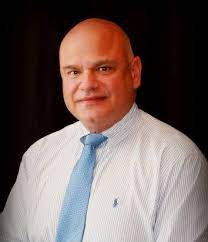
Becoming an ear, nose, and throat (ENT) specialist requires dedication, extensive medical training, and a passion for diagnosing and treating diseases of the head, neck, and upper chest. Dr. Paul Drago, an accomplished ENT specialist, outlines the essential steps involved in pursuing a career in this field.
1. Pursue a Medical Degree: The first step towards becoming an ENT specialist is to complete a medical degree. This typically involves four years of undergraduate study followed by four years of medical school. During medical school, students receive comprehensive classroom instruction and gain exposure to various medical specialties.
2. Complete Residency in Otolaryngology: After obtaining a medical degree, aspiring ENT specialists must undertake a residency in otolaryngology. This residency program focuses on specialized training in diagnosing and treating disorders related to the ear, nose, and throat. The duration of the residency can range from three to seven years, depending on the chosen specialty and the program.
3. Obtain Board Certification: Following the completion of the otolaryngology residency, aspiring ENT specialists must pass the board certification exam for Otolaryngology-Head & Neck Surgery. This exam consists of written, oral, and clinical skills verification tests that assess the candidate’s knowledge, skills, and competence in the field. Successful completion of the exam leads to board certification as an ENT doctor.
4. Gain Clinical Experience: During medical school and residency, it is crucial to gain hands-on clinical experience in ENT. This can be achieved by working as a resident physician, intern, or physician assistant under the guidance of experienced ENT specialists. Additionally, seeking opportunities in the healthcare industry or medical field can provide valuable exposure to ENT-related cases.
5. Seek Clinical Fellowships: To further enhance their expertise, aspiring ENT specialists can pursue clinical fellowships. These fellowships offer specialized training in specific areas of otolaryngology, such as pediatric otolaryngology, head and neck oncology, or otology/neurotology. Research opportunities during fellowships can be explored by contacting medical institutions directly.
6. Fulfill Licensing Requirements: To practice as a board-certified ENT specialist, obtaining the necessary licenses is essential. Each country or state has its own licensing requirements, which typically include completing the required number of years in postgraduate training, such as a residency program in otolaryngology-head and neck surgery.
In conclusion, becoming an ENT specialist requires a significant investment of time and effort. By pursuing a medical degree, completing a residency in otolaryngology, obtaining board certification, gaining clinical experience, seeking clinical fellowships, and fulfilling licensing requirements, individuals can embark on a rewarding career as an ENT specialist. Paul Drago MD emphasizes the importance of dedication and a commitment to lifelong learning in this field, as it constantly evolves to provide the best care for patients with ear, nose, and throat conditions.






